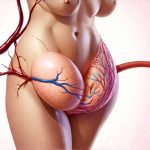Frequent bloating followed by irregular stool output is a common experience many individuals face, often leading to discomfort and concern. It’s rarely a single event but rather a pattern that can significantly impact daily life. The cyclical nature – the swelling sensation giving way to either constipation or diarrhea – suggests something more than just occasional digestive upset. Understanding this interplay between bloating and stool irregularities requires looking beyond simple dietary adjustments, although those are often important first steps. It’s about recognizing that the gut is a complex ecosystem, influenced by numerous factors from food sensitivities to stress levels, and even underlying medical conditions.
This combination of symptoms isn’t necessarily indicative of a severe illness, but it does warrant attention. Ignoring persistent bloating and erratic bowel movements can lead to chronic discomfort and potentially mask more serious issues developing over time. Many people initially try to self-diagnose or manage the symptoms with over-the-counter remedies, which can sometimes provide temporary relief but don’t address the root cause. A proactive approach that involves careful observation of your body’s signals and, when necessary, consultation with a healthcare professional is crucial for long-term digestive health and wellbeing.
Understanding the Digestive Process & Common Disruptions
The digestive system is designed to efficiently break down food, absorb nutrients, and eliminate waste. Bloating occurs when excess gas accumulates in the gastrointestinal tract. This can be due to several reasons: swallowing air while eating, fermentation of undigested carbohydrates in the colon (by gut bacteria), or even constipation slowing down the movement of waste. Irregular stool output – ranging from hard, infrequent stools characteristic of constipation to loose, frequent stools indicative of diarrhea – points to disruptions in this process. These disruptions can stem from a wide array of factors including dietary choices, hydration levels, stress, and underlying medical conditions.
The relationship between bloating and irregular stool is often bidirectional. For example, constipation allows more time for gas-producing bacteria to ferment undigested food, worsening bloating. Conversely, diarrhea may be accompanied by rapid gas production due to the quick passage of food through the digestive system. It’s a feedback loop where one symptom can exacerbate the other. Identifying whether the irregularity leans towards constipation or diarrhea is a vital first step in understanding potential causes and managing symptoms. Dietary factors are frequently involved; foods high in FODMAPs (Fermentable Oligosaccharides, Disaccharides, Monosaccharides And Polyols) – found in many common foods like onions, garlic, wheat, and certain fruits – can be poorly absorbed by some individuals, leading to fermentation and gas production.
Furthermore, the gut microbiome—the trillions of bacteria residing in our digestive tract—plays a significant role. An imbalance in this microbial community (dysbiosis) can contribute to both bloating and irregular stool output. Conditions like Small Intestinal Bacterial Overgrowth (SIBO), where excessive bacteria accumulate in the small intestine, are often associated with these symptoms. Lifestyle factors such as chronic stress, lack of sleep, and insufficient physical activity also impact gut health and digestive function, making them important areas to assess when dealing with persistent issues. Understanding stool bacteria ratios can be a helpful step in assessing your microbiome.
Potential Underlying Conditions
When bloating and irregular stool become frequent occurrences, it’s essential to consider the possibility of underlying medical conditions. Irritable Bowel Syndrome (IBS) is a common functional gastrointestinal disorder that often manifests as abdominal pain, bloating, and alternating constipation and diarrhea. It’s typically diagnosed after excluding other potential causes. However, IBS is more than just “nervous stomach” – it involves complex interactions between the gut, brain, and microbiome.
- Food intolerances (like lactose or gluten intolerance) can trigger both bloating and changes in stool consistency.
- Inflammatory Bowel Disease (IBD), encompassing conditions like Crohn’s disease and ulcerative colitis, causes inflammation of the digestive tract, leading to chronic symptoms including abdominal pain, diarrhea, and sometimes constipation. These are often accompanied by more severe systemic symptoms.
It’s important to differentiate between these conditions through proper medical evaluation. Self-diagnosis can be misleading, and a healthcare professional can perform necessary tests – such as stool analysis, blood tests, and potentially colonoscopy or endoscopy – to determine the underlying cause of your symptoms. Don’t hesitate to seek medical attention if you experience alarm symptoms like rectal bleeding, unintentional weight loss, severe abdominal pain, or persistent vomiting. It’s also worth considering whether digestive diagnostics are necessary to rule out other illnesses.
Dietary Strategies for Symptom Management
Diet plays a pivotal role in managing bloating and irregular stool output. Often, small adjustments can yield significant results. A key strategy is the elimination diet, which involves removing potential trigger foods from your diet for a period of time and then gradually reintroducing them to identify sensitivities. This should ideally be done under the guidance of a registered dietitian or healthcare professional. Focus on easily digestible foods and avoid those known to contribute to gas production.
Here’s a step-by-step approach:
- Keep a Food Diary: Track everything you eat and drink, as well as any associated symptoms.
- Eliminate Common Triggers: Remove foods high in FODMAPs, gluten (if suspected intolerance), dairy (if lactose intolerant), artificial sweeteners, and processed foods.
- Reintroduce Gradually: After a period of elimination (typically 2-6 weeks), slowly reintroduce one food at a time, observing for any symptom recurrence.
- Focus on Gut-Friendly Foods: Incorporate probiotic-rich foods like yogurt, kefir, sauerkraut, and kimchi to support a healthy gut microbiome. Include prebiotics – fibers that feed beneficial bacteria – found in foods like garlic, onions (in moderation), asparagus, and bananas.
Hydration is also crucial. Drinking plenty of water helps soften stool and prevent constipation, while also aiding in the overall digestive process. Aim for at least eight glasses of water per day. Consider incorporating fiber-rich foods gradually to avoid exacerbating bloating – a sudden increase can sometimes worsen symptoms. Understanding top early signs from stool tests can also help with dietary adjustments.
Stress Management & Lifestyle Modifications
The gut is intimately connected to the brain through what’s known as the gut-brain axis. Chronic stress can significantly disrupt digestive function, leading to both bloating and irregular stool output. When you’re stressed, your body releases cortisol, a hormone that can affect gut motility (the movement of food through the digestive tract) and microbiome composition.
Implementing stress management techniques is therefore vital for improving digestive health. Consider incorporating practices like:
- Mindfulness Meditation: Regular meditation can help reduce stress levels and promote relaxation.
- Yoga or Tai Chi: These mind-body exercises combine physical postures, breathing techniques, and meditation to reduce stress and improve overall wellbeing.
- Regular Exercise: Physical activity is a natural mood booster and helps regulate gut motility. Aim for at least 30 minutes of moderate-intensity exercise most days of the week.
- Adequate Sleep: Prioritize getting 7-8 hours of quality sleep each night, as sleep deprivation can exacerbate stress and disrupt digestive function.
Beyond stress management, lifestyle modifications like chewing food thoroughly, eating smaller, more frequent meals, and avoiding late-night snacking can all contribute to improved digestion and reduced bloating. These seemingly small changes can have a cumulative effect on your overall gut health and wellbeing. Remember that consistency is key; it takes time to establish new habits and see lasting results. If you experience frequent discomfort, it’s wise to consider hidden gut issues. Additionally, can frequent nausea be a related symptom to investigate? It’s also important to remember can frequent bloating affect nutrient absorption and overall health.
Disclaimer: This article provides general information about digestive health and should not be considered medical advice. Always consult with a qualified healthcare professional for diagnosis and treatment of any health condition.


















